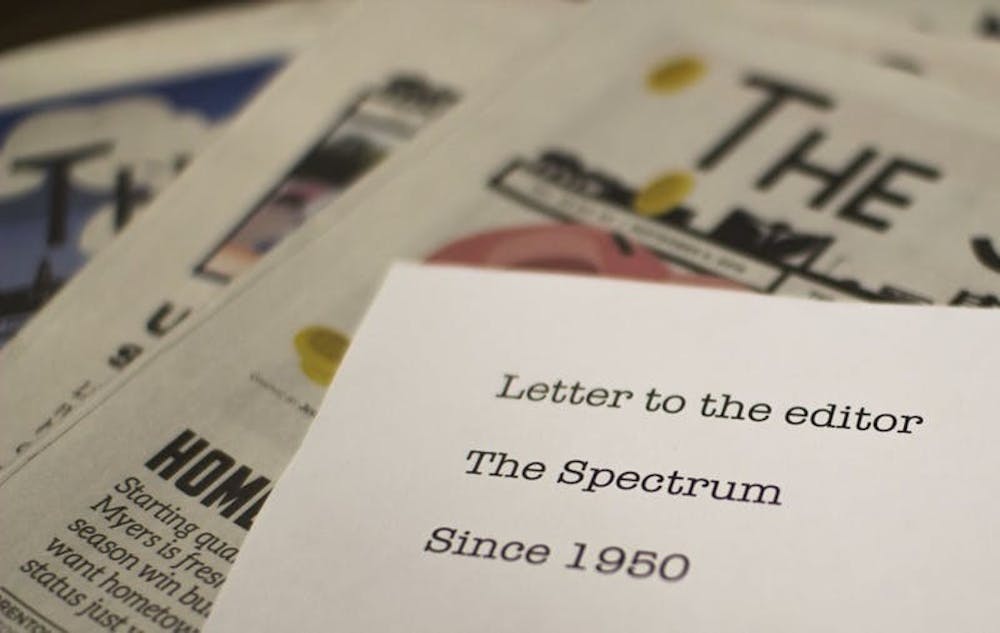Editor's note: This letter remains in the condition in which it was sent.
On September 12, the BPD responded to a mental health crisis at the corner of Genesee and Ash. The subject of the call was a middle aged man by the name of Willie Henley, who is homeless. Per the official police statement regarding the incident, within a minute of the officers arriving at the scene, pepper spray was used against Mr. Henley. Eyewitnesses report that he became agitated only after being surrounded by the police, and made repeated attempts to remove himself from the situation, walking away from the officers, who pursued him as he became increasingly upset, eventually lashing out with a baseball bat, at which point he was shot in the abdomen by officer Karl Schultz. Officer Schultz has a history with violence on the job; in 2012 he repeatedly shot 17 year old honors student Wilson Morales, paralyzing him for life. Since 2008, he has been investigated by Internal Affairs for 17 different complaints, 8 of which were for incidents concerning excessive force. He has not been charged in relation to the incident, while Mr. Henley has.
In the national conversation about racial justice and police violence, college campuses and their campus police have been the subject of renewed scrutiny. The intersection between education and policing is also an intersection with racial justice; access to equal education is one of the oldest fights in the struggle against white supremacy, a fight which continues into the modern day. Decades of racist policing and legislation have created a school to prison pipeline which destroys the hopes and dreams of black students across the country, and at the college level, daunting institutional and financial barriers work to make graduation less attainable for black students than for their white peers, and the educational material itself often contains racist biases. All of this has been discussed at length
But there is another connection between the events of September and policing on campus. Willie Henley suffers from mental illness, and like many in our society who suffer from mental health issues lack the economic means to seek counselors and therapists. This discrepancy can cause individuals to get mixed up with the police as well as to commit harm against themselves or others.
The University at Buffalo has a tragic suicide problem. Though the numbers aren’t formally reported, in the last year alone UB has seen two suicides and during a time of even more economic distress on top of increased academic rigor and technological barriers due to COVID-19 it will be tragic but unsurprising to see more UB students go down this path. Instead of simply writing emails, UB must commit more funds to its Mental Health Services in order to get help to those in need. It’s time to actually address the complaints about having to wait weeks to see a counselor----people in need of mental help cannot wait weeks. We must do all we can as a community at UB to demand that the needs of our fellow students are met. It is imperative that we come together in solidarity of those in need. This can be done even on a personal level: assisting in mutual aid where you can, checking in on loved ones and even those you don’t know, and trying to make the spaces you occupy open and accepting.
The UB YDSA is calling upon UB to transfer the portion of funds dedicated to the UBPD from the UB Comprehensive Fee (approximately 5% of the UBPD budget) to Counseling Services. A 5% cut to UBPD means a 10% increase in funding to Counseling Services. If UB actually cared about saving lives and dealing with the mental health disparities which exist in communities of low economic mobility and of color, they would be increasing funding for mental health services and not the police. While student feedback reflects wait times of over a month, the service itself is highly regarded by students: 95% would recommend it to a friend, and 83% of students have attended 1-10 counseling sessions with the average being 6. Clearly UB Counselors do a good job of trying to care for students but the Department needs strengthening and an increase in staff.
To people of low economic means, having someone to talk with about their problems and anxieties is crucial to maintaining their mental and social health. Of the 14,453 UB students who receive counseling in the 2018/19 school year, 45% were students of color and 22% were first generation college students. If the UB Administration wants to show that it cares about racial injustice, as it claims to for the purposes of moral grandstanding, it would act to help those in need of more robust mental health services. Now more than ever is the time for solidarity with those of lower economic means, students of color, and LGBTQ students who also exhibit higher rates of suicide and mental health issues due to systemic homophobia and transphobia. To be a socialist is to do whatever you can to challenge the legitimacy of unjust hierarchical institutions, improve the material conditions of the oppressed, and work to restructure political and social economy wherever possible. To any students reading, if you’re interested in joining us contact ydsa.ub@gmail.com.





